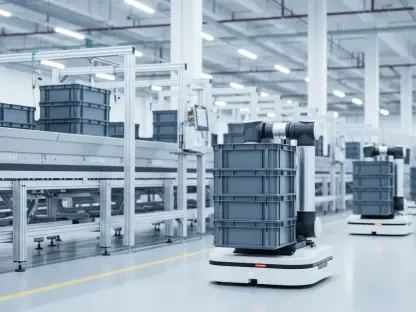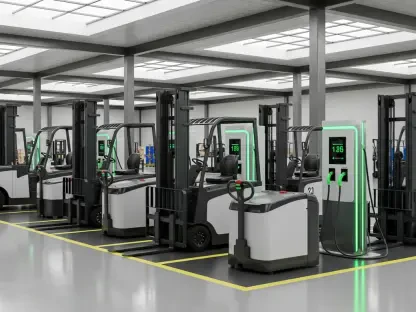Artificial intelligence has started to redefine the landscape of demand forecasting in the retail and hospitality industries. The ability to optimize inventory, sales, and staffing through AI-driven solutions is rapidly gaining traction, offering unprecedented advantages in business operations. By intricately analyzing historical data, AI enables more precise sales trend predictions, averting challenges such as overstock or stockouts. These technological strides present a robust competitive edge, making it essential to examine the evolving dynamics in this sector.
Unleashing the Potential of AI in Retail Dynamics
For years, retailers have grappled with the cumbersome challenge of predicting consumer demand using traditional methods, which often led to inefficiencies and inaccuracies. The introduction of AI into this domain revolutionized forecasting techniques, shifting them from manual practices to automated, data-driven processes. Businesses, regardless of size, now have the opportunity to harness complex algorithms to accurately foresee consumer needs and tailor their strategies accordingly. This shift highlights the need for businesses to adapt to these innovative tools to stay competitive in a dynamically changing market.
Analysis of Current Trends and Predictions
Harnessing Data for Strategic Advancement
The use of AI in demand forecasting is built on its unparalleled capacity to process vast datasets, offering strategic insights into sales trends. A notable example is SmartTab, a POS platform that significantly bolstered its market presence by integrating AI design from MobiDev. This advancement allowed venues like bars and nightclubs to prevent stockouts during high-demand periods, such as sports events, showcasing the benefits of precise demand prediction. Such cases illustrate the transformative impact AI has on operational efficiency and customer satisfaction.
Embracing Customer-Centric Innovation
AI doesn’t just facilitate demand prediction; it enhances marketing and labor strategies by fostering a customer-centric approach. Through detailed analytics, businesses can personalize their marketing efforts, resulting in increased consumer engagement and loyalty. By comparing traditional approaches with AI-driven strategies, it’s clear that greater personalization offers exponential growth opportunities and innovative business practices. Retailers can now create bespoke marketing campaigns, optimizing not just the sales process but overall customer experience.
Market Dynamics and Sector-Specific Applications
The impact of AI varies across different regions and industries, each presenting distinct challenges and opportunities. While large corporations have historically dominated AI utilization, there is now a democratization of technology reaching smaller businesses. This accessibility allows various market players, including niche SaaS platforms, to implement AI-driven methodologies, correcting previous misconceptions about AI being reserved for tech giants. Leveraging these smart tools equips businesses to meet region-specific demands effectively and achieve competitive differentiation.
Reflecting on the Findings and Strategic Directions
The profound integration of AI in retail and hospitality demand forecasting has presented numerous operational and strategic advantages, from reducing stockouts to enhancing targeted marketing. As the technology matures, future staying power will be determined by how effectively brands can incorporate AI advancements into their strategic outlooks. Businesses keen on harnessing AI must focus on actionable approaches, like investing in cutting-edge tools and capitalizing on data-driven insights for refined consumer interaction strategies. The potential for AI to transform retail operations is vast, making strategic alignment with these evolving technologies crucial for future success.
Observations from these market developments revealed that retailers who swiftly adapt to an AI-centric approach find themselves thriving against competitors. The necessity for innovation and strategic planning becomes glaringly obvious as advancements continue to bridge operational gaps. Consequently, businesses are encouraged to prioritize AI technologies and data analysis to effectively navigate this transformative era, securing sustained growth and market agility.









